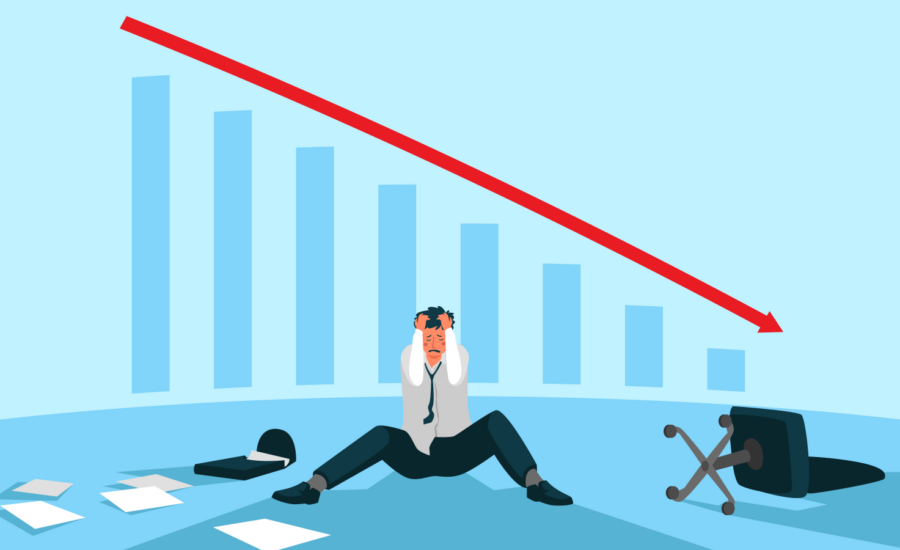Is the stock market going to crash in 2025?
Canadian investors are watching their portfolios closely in light of recent volatility. Here’s what we can tell you about the risk of a market decline this year.
Advertisement
Canadian investors are watching their portfolios closely in light of recent volatility. Here’s what we can tell you about the risk of a market decline this year.

For a financial journalist, it’s probably the question friends and new acquaintances most frequently ask: Is the stock market going to crash soon?
The short answer I, and any credible market-watcher, will give is: I don’t know. Markets are by their nature unpredictable. A few supposed seers correctly guessed the last bear market, and others will probably foresee the next one. The fact is that someone, somewhere, is always predicting a crash. Like broken clocks, they will be right every now and then.
That said, I can share some certitudes that come from covering the markets for more than three decades.

The first thing to keep in mind is that major market downturns don’t necessarily manifest over a matter of days. Sometimes stock prices just start slipping and keep going. During the dot-com bust, the Nasdaq Composite Index took 31 months to lose 78% of its value, between March 2000 and October 2002, with the odd bear-market rally in between.
Second, what happens in the markets seldom coincides with what’s happening in the economy. “Black Monday” in 1987 took place more than three years from the nearest recession. Markets are forward-looking, and they can fall simply because their earlier expectations were too optimistic. Will there be a recession in Canada this year? Quite possibly, but that will have little bearing on your stocks’ performance.
Third, the best days to be in the market are often right around the bottom. If you’re not invested at that point, you’ll miss them. And it’ll cost you: in 2022—the last lousy year in the markets—TD Asset Management conducted an exercise showing that $10,000 invested in the S&P/TSX Composite on December 31, 1991, would have grown to $60,423 after 30 years. But if you failed to participate in the best 1% of trading sessions over that period, you’d have lost money and be left with just $3,747 on December 31, 2021.
In other words, even if you could predict a crash in advance, you’d need to be right a second time, knowing exactly when to get back into the market, to really capitalize.
Major market meltdowns are almost always accompanied by four phenomena:
Here’s how they work together.
Turning to 2025, one could argue that stocks are overvalued and that we’ve seen a shock in the form of very high tariffs imposed or, at least, threatened by the United States on its major trading partners. But no pervasive imbalance has been laid bare, and investors themselves have been surprisingly resilient. It reminds me of 1998, when the hedge fund Long-Term Capital Management collapsed, or 2006, with the unravelling of Amaranth Advisors on misplaced natural-gas bets. Though markets may indeed have been overvalued in those years, the damage was contained and they plodded on.
Most of the time, stock markets climb this “wall of worry,” as traders put it. Despite a litany of risks, you find that your money invested in the market has grown by the end of the year. Maybe it won’t happen this year. Maybe investors will have to content themselves with consecutive double-digit gains in 2023 and 2024 and take a loss on 2025. The only sure way to capture the market’s proven record of long-term growth is to stay invested in good times and bad.
Share this article Share on Facebook Share on Twitter Share on Linkedin Share on Reddit Share on Email